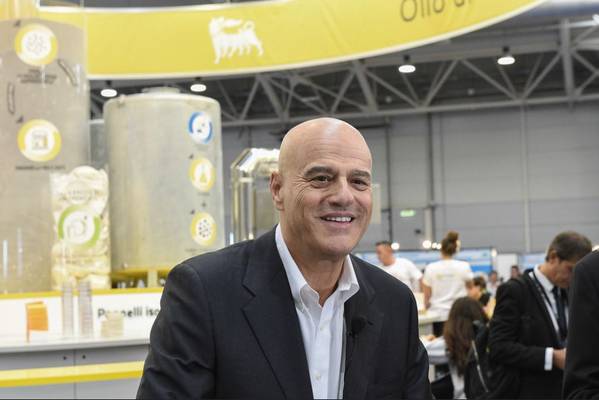
Italian energy group Eni on Friday pledged to shrink its greenhouse gas emissions by 80% in one of the industry's most ambitious clean-up drives, just weeks before a decision on its chief executive's future.
In its new business plan, Eni said its oil and gas production - forecast to grow 3.5% a year - would peak in 2025 before declining. "The result will be a portfolio that is more balanced and integrated and will be stronger for its adaptability and competitive shareholder remuneration," Chief Executive Claudio Descalzi said.
The announcement comes ahead of a decision by the Italian government on whether or not to re-appoint Descalzi as CEO.
The veteran oil man is under pressure to prove he can shift the group towards cleaner sources of energy without inflicting too much damage on profitability. Four senior political sources told Reuters earlier this month that the government, which holds a 30% stake in the company, was leaning towards giving Descalzi a third term provided he will work with a new board to speed up efforts to cut carbon emissions.
The state-controlled group, which will invest an overall 32 billion euros ($34.78 billion) by 2023, pledged to pay higher dividends. It also reported adjusted net profit for the fourth quarter of 546 million euros, missing a 680 million euro consensus provided by the company.
Oil and gas producers are feeling the heat from shareholders and environmental activists to cut emissions to meet the 2015 Paris climate goals with big institutional investors looking increasingly to green credentials to steer investments.
Rivals such as Repsol SA, Royal Dutch Shell PLC, and BP PLC had gone further in such efforts than Eni, and Descalzi was under pressure to set bolder goals. Descalzi has now announced one of the most ambitious emission cutting programs in the industry since the 80% target, which applies to all its businesses by 2050, covers what Eni produces and what it buys from third parties.
He said the carbon footprint reduction will be driven by more gas in the portfolio, conversion of its refineries to biofuels and forestry and carbon capture measures that will absorb up to 40 mln tonnes of CO2.
Oil and gas producers have traditionally argued that they cannot control emissions from the use of the products, such as petrol in a car, but investors worried about climate change have stepped up the pressure on them to take some responsibility.
($1 = 0.9201 euros) (Reporting by Stephen Jewkes; Editing by Christopher Cushing and Carmel Crimmins)